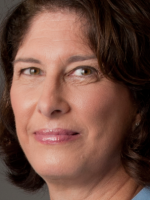A new NPR poll shows that President Obama's job approval rating is still high — 59 percent — and among likely voters surveyed, the Democratic position on issues was favored across the board. Still, there's some reason for Republicans to hope.
In NPR's first survey since the election, a bipartisan team of pollsters — Republican Glen Bolger and Democrat Stan Greenberg — found that a lot has changed. Despite a major economic crisis, far fewer voters think the country is on the wrong track: 63 percent, down from 80 percent in the previous NPR national poll.
That means that — relatively — people are happier with their leaders in Washington. But when asked whether they'd vote for the Republican or Democratic congressional candidate if the 2010 elections were held today, the result was a tie: 42-42.
"There's concern about the spending plans and other paths that Obama and Democrats in Congress are taking, so I think you're seeing a little bit more move toward a balance," Bolger said. "People still want the president to succeed. He's got a 59 percent approval rating. He has a lot of intensity, particularly from his base. But that doesn't mean that people want one side to have a blank check."
Historically, the party that holds the White House and Congress loses seats in midterm elections. But Greenberg points to other findings in the survey, which was conducted March 10-14.
"Everything else in this poll points toward much more dramatic shifts toward the Democrats," he said. "On all of the arguments we've looked at in this survey, on virtually every single question, Democrats enjoy about a 10- to 12-point advantage."
When asked to compare Democratic and Republican positions on health care, energy, the deficit, taxes, the stimulus package and the president's budget, Democrats came out ahead across the board.
"That means Republicans still have their work cut out for us," Bolger said.
"It means the Democrats are dominating the issue debate before the country," added Greenberg. "As we're going into these big debates about the direction of the country, we have the Democrats with a consistent advantage on ideas. And this is above partisanship — this is twice the party ID advantage."
On party ID, the number of likely voters identifying themselves as Democrats is 6 points ahead of Republicans — not nearly as big a spread as during the election, or in the actual voting for House seats.
Then there's the president's job approval rating: a healthy 59 percent overall, and 56 percent on handling the economy. It is down from the mid-60s, but it's just about where the past four presidents have been at this point in their terms.
Still, inside the Obama approval rating, there are data that are heartening to Republicans who have been waiting a long time for some good news — and Bolger is one of them.
"What I find encouraging is that in this survey, he's under 50 percent approval among independent voters," Bolger said. "I thought that, you know, given his rock star status, that he was going to be stronger longer with independents. But independents are becoming a little more skeptical. They haven't turned on him by any stretch, but he's not up on the pedestal among independents like he had been right after the election and right around the inauguration."
One such independent is Paul Pease from Stewartstown, Pa.
"He's definitely doing something different than he led us to believe," Pease said. "The hope was that he would use the left to get elected and then become a centrist. But he definitely is not a centrist. I think the direction he's going is not helping us."
Just when independent voters might begin blaming President Obama for the economy is still an open question. Independent Jean Drusko of Titusville, Pa., echoes the president's complaint that he inherited a big mess.
"When he made a lot of those promises, he didn't have this big economy thing hanging over his head," she said. "I mean, he's got an emergency. And I think he's got to take care of that emergency, or none of it's going to be worth anything."
Most of those surveyed agreed that the economy is in a poor state.
"You can't say people don't pay attention to the news when nobody rates [the economy] as excellent," Greenberg said.
Indeed, not a single person in the survey described the state of the economy as excellent — 3 percent said it was good, 30 percent said not so good, and 66 percent called it poor. On that much, at least, all parties can agree.
Copyright 2022 NPR. To see more, visit https://www.npr.org. 9(MDAzMjM2NDYzMDEyMzc1Njk5NjAxNzY3OQ001))







